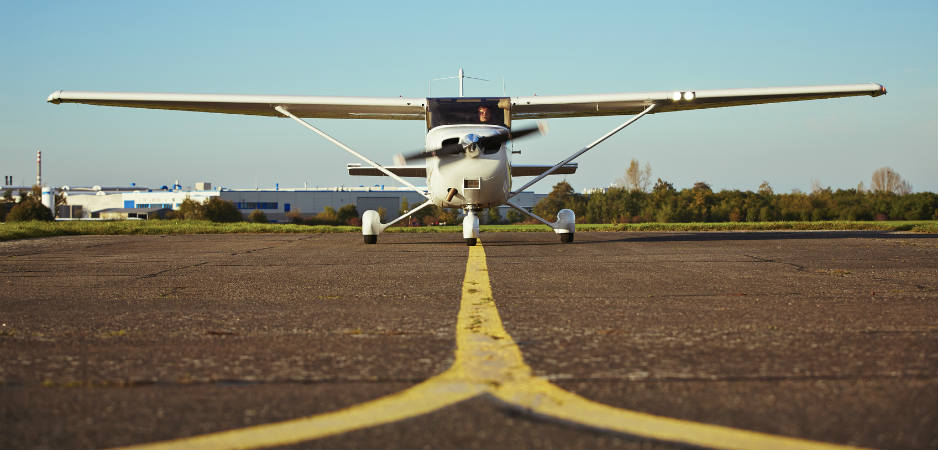The lack of inspections from the Brazilian aviation agency puts lives of thousands at risk.
On August 3, 1992, a Petrel airplane crashed near the city of Oshkosh, Wisconsin, during the Experimental Aircraft Association (EAA) AirVenture fair. Two people died. According to the National Transportation Safety Board (NTSB) report, the cause of the accident was “inadequate quality control” of the tail boom as it was constructed with “only four of the six required carbon fiber laminate plies.” The tail boom came assembled from the Petrel kit manufactured in Brazil by Scoda Aeronautica.
In July 2016, 24 years later at the same AirVenture fair, thousands of airplane aficionados and the aircraft homebuilt/experimental community were exchanging information about their new sets of wings, light sport aircraft (LSA) models and engines. LSAs are a wide variety of aircraft, including two-seat, ultra-light designs and powered parachutes, antiques and classics. But unlike in America, where even experimental manufacturers have to follow minimum security standards, in Brazil they easily fly over our heads but under the inspections radar.
Among them, promoting and selling airplanes to the American market, was a Brazilian company named Super Petrel USA. In 1992, the same company had a different name: Edra Aeronautica.
Edra Aeronautica, which changed its name to Scoda Aeronautica in 2015 and is now called Super Petrel USA, is only one of the many Brazilian aircraft manufacturers that endangers pilots and aircraft owners by offering poor quality products.
A deeper analysis reveals that the sources of these problems are not only the Brazilian companies that do not follow international aviation rules, but the Brazilian legislation itself, or rather the lack of it. The sector’s regulation in Brazil is inadequately conducted by Agencia Nacional de Aviacao Civil (ANAC), a regulatory agency similar to the US Federal Aviation Administration (FAA) in its duties, but quite different in its organization.
Investigating Accidents
In Brazil, the aeronautical authority for all aircraft accidents investigations (civilian or military) is CENIPA—the Brazilian Air Force department. On the other hand, the aeronautical authority for regulation and enforcement is the civilian ANAC. Due to this, the mixture of civil and military aviation authorities, the proper prevention and, eventually, investigation of aeronautical accidents do not work in harmony. CENIPA does not investigate experimental/homebuilt accidents as a rule, because these pilots fly over restricted areas at their own risk. For that reason alone the agency should be stricter toward the companies that manufacture them, but there is no data and no reports or statistics for this segment of the aviation industry.
Because there are no official records, it is difficult to assess how many accidents involving experimental planes occur in Brazil. We only hear about the ones involving well-known people, like the one that killed Roger Agnelli and six members of his family in March of last year.
Moreover, the same experimental industries create ANAC regulations for the experimental/homebuilt segment. The legislators are the aircraft owners, kit assemblers and importers, and plane producers like Edra/Scoda/Super Petrel USA.
This is just another proof of how chaotic Brazil’s experimental aircraft industry is. It starts with the regulation of LSAs—Aeronaves Leves Esportivas (ALE) in Brazil. To be a LSA, among other characteristics, you have to follow a set of rules set by American Society for Testing of Materials (ASTM), but ANAC simply allows all Brazilian experimental manufacturers to certify themselves as ALE even though none of them follow the ASTM rules.
Because there are no official records, it is difficult to assess how many accidents involving experimental planes occur in Brazil. We only hear about the ones involving well-known people, like the one that killed Roger Agnelli and six members of his family in March of last year. Agnelli was the president of Vale, the world’s top iron ore producer. His experimental airplane, a Comp Air 9 turboprop monoplane, slammed into two residential homes minutes after taking off from an airport in the heart of São Paulo, despite Brazilian air law forbidding experimental airplanes to fly over populated regions.
Preventable Tragedies
In January of 2015, Brazil faced another tragedy that could have been prevented had the system of regulations worked properly. An accident with a Super Petrel killed a 19- year-old pilot—one of the rare accidents with experimental airplanes that were investigated by CENIPA. Analysis of these items by certified mechanics and engineers revealed other problems concerning the Petrel/Super Petrel model and the Edra/Scoda quality control: its fuselage is not made of carbon fiber, as it is advertised; the aircraft has non-aeronautical components; Super Petrel does not have a fuel indicator for each of its three tanks, to name but a few.
Also, the legislation analysis revealed that the sources of these problems were related to the sector’s regulation in Brazil—ANAC again.
A few months later, representing Brazilian Relatives and Victims Air Accidents Association (Abrapavaa), the pilot’s father denounced ANAC at the Brazilian federal Senate, leading to changes in the experimental/homebuilt regulatory environment. The key step is the proposed ban on experimental aircraft sales to customers, as suggested by a special committee responsible for the initial hearings during the discussion of the new Brazilian Aeronautical Code law project.
The CENIPA official report also revealed information regarding the manufacturer of the aircraft: Although there was a mandatory alert service bulletin—the equivalent of a recall—warning that the company should replace the engine’s fuel hose and that the “non-compliance with these instructions could result in … fatal injury.” Edra/Scoda informed that the piece was replaced during aircraft production, but the report shows that it was not replaced, with the flight ending in anticipated fatality.
Next August, the Senate will start to discuss the reform of the country’s new aviation legislation. Before the politicians vote on the proposal, an expert commission with strong general aviation representation is going to propose an updated legal code governing the industry. It is more than obvious that the current, 30-year-old Code of Aviation (CBA) needs to reflect the new developments such as increased air passenger traffic and new technology such as drones.
But nothing will be more helpful to the Brazilian society than a good review of the prevention and regulation laws concerning accidents related to experimental or fake LSA aircraft—a problem that hangs over all of our heads.
The views expressed in this article are the author’s own and do not necessarily reflect Fair Observer’s editorial policy.
Photo Credit: Chalabala
 We bring you perspectives from around the world. Help us to inform and educate. Your donation is tax-deductible. Join over 400 people to become a donor or you could choose to be a sponsor.
We bring you perspectives from around the world. Help us to inform and educate. Your donation is tax-deductible. Join over 400 people to become a donor or you could choose to be a sponsor.
Support Fair Observer
We rely on your support for our independence, diversity and quality.
For more than 10 years, Fair Observer has been free, fair and independent. No billionaire owns us, no advertisers control us. We are a reader-supported nonprofit. Unlike many other publications, we keep our content free for readers regardless of where they live or whether they can afford to pay. We have no paywalls and no ads.
In the post-truth era of fake news, echo chambers and filter bubbles, we publish a plurality of perspectives from around the world. Anyone can publish with us, but everyone goes through a rigorous editorial process. So, you get fact-checked, well-reasoned content instead of noise.
We publish 2,500+ voices from 90+ countries. We also conduct education and training programs
on subjects ranging from digital media and journalism to writing and critical thinking. This
doesn’t come cheap. Servers, editors, trainers and web developers cost
money.
Please consider supporting us on a regular basis as a recurring donor or a
sustaining member.
Will you support FO’s journalism?
We rely on your support for our independence, diversity and quality.






